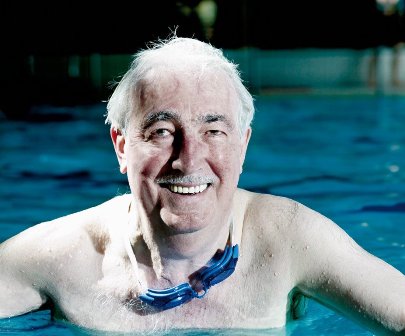
Learning to swim: the real expert could well be in the water
Afraid to ask and afraid to reply: is it time for a reticence amnesty?
Andrea Andrews wonders whether it is time for swimming teachers to ask the right questions of the right people and heed the lessons from grassroots football about how and what young people want to learn.

Learning to swim: the real expert could well be in the water
Nervous adults and children learning to swim (LTS) usually suffer in complete silence because they believe that the fault lies completely with them. If asked they will tell the teacher what they think the teacher wants to hear. This polite deception has a powerful effect as it stops many learners succeeding and leads to them leaving lessons. It also stops many teachers from learning what they should want to know.
Perhaps it is time to give these people a new platform to say how they genuinely feel about their LTS experiences and act upon the replies? What format should we use to gain the best insights from LTS users?
Parents have been asked what they want from their children’s lessons but we have never asked the children themselves for their views. We may well be surprised by their responses and our jobs may even get easier if we understand the point of view of such primary customers.
This is happening in grassroots football as they dared to ask. As Nick Levett, FA national youth development manager, explains: “This is more than just asking the young people what they think, it is bigger than that. This is about developing ownership, involvement and empowerment within something that is essentially ‘their game’ too. Football as a sport has been dominated for years by adults telling young people what to do but the modern-day learner is very different to that of 30 years ago – their lives have moved on so much. We learnt from one TV channel, in black and white and saw Match of the Day once a week. The modern-day child has football 24/7 from around the globe and can learn new tricks and skills from YouTube at a time suitable for them.
“By asking young people what they want we found something different, because they look at the world through a different lens to that of adults and place inherent, intrinsic meaning on their sporting engagement. It is up to us as the adults to develop a system that meets their needs, not ours.
“Asking young people what they think is inspired by the work of Hart (1994) and Shier (2001) about involving young people in decision-making. This involved setting up a variety of focus groups around the country, developing a workshop using Masters-level research methods in education and a process of ethical evaluation. The initial reaction from adults upon seeing the results is disbelief, probably because they don’t expect it nor can they believe it; and they often question the outcomes. However, all findings from focus groups marry up with academic research.”
In addition asking LTS adults for feedback is very often like the waiter in a restaurant asking if the meal is OK and expecting to hear the same stock reply every time. No one wants to offend and prefers to tell the teacher what they think they want to hear. They feel that the truth hurts everyone because an immediate search for the source of the blame would ensue. This is where everyone feels fault and why no one wants to ask or reply. Anonymity or a shift in culture can change that.
In many walks of life we ask participants for their honest feedback and get it. Isn’t it really about time we decided to stop studying the actions of the teacher next door and started to ask those who are on the receiving end of our lessons what would actually help them learn? Imagine if we could use these valuable resources right in front of us? Our researches need not be costly rather it could be costly not to ask.
Discuss.
Andrea Andrews is an instructor with A2Z Swim, who can be found online at www.a2zswim.co.uk
The Leisure Review, February 2013
© Copyright of all material on this site is retained by The Leisure Review or the individual contributors where stated. Contact The Leisure Review for details.
![]() Download a pdf version of this article for printing
Download a pdf version of this article for printing